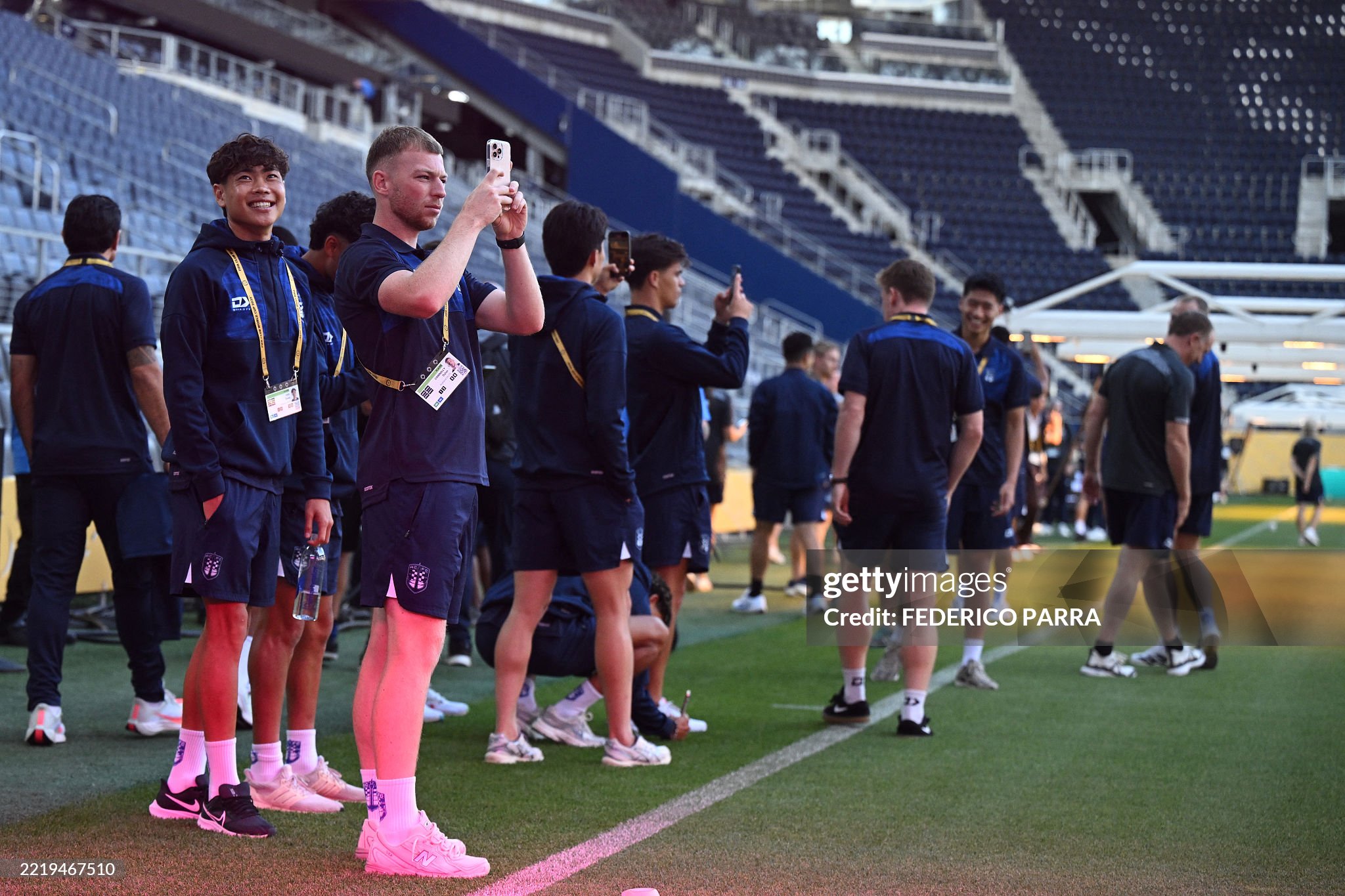On a warm Sunday evening in Cincinnati, the vast gulf between football’s elite and its dreamers was on full display as Bayern Munich began their Club World Cup campaign with a dominant 5–0 win over Auckland City.
The result itself came as no surprise the German champions fielded a starting XI filled with international stars like Harry Kane, Leroy Sané, and Joshua Kimmich, while their opponents, Auckland City, arrived in the United States with a squad made up almost entirely of semi-professional players. But while the scoreboard told one story, the occasion told another one of ambition, sacrifice, and the magic of football’s global reach.
Auckland City, the pride of New Zealand football and champions of the Oceania region, operate in a completely different world than Bayern. According to AFP, most of their players had to take unpaid leave from their day jobs just to make the trip. Among them was striker Angus Kilkolly, the team’s top scorer, who works full-time as a sales manager at a tools company and earns around eighty euros a week from his footballing duties. “You feel like a professional footballer for a moment, even though you’re not one,” he said before the match. “Playing against clubs like these is already a dream. Standing on the same field as all those stars feels a bit surreal.”
Despite the odds, Kilkolly and his teammates travelled to the Club World Cup determined to make the most of what was, for many of them, a once-in-a-lifetime opportunity. Teachers, students, real estate agents and IT consultants lined up in Auckland’s blue and white kits as they prepared to face a club valued at over a billion euros. Kilkolly, speaking candidly to the press before kick-off, admitted that the financial sacrifice had been significant. “I don’t get four weeks of paid leave from my job, so this is all unpaid. But it’s a unique opportunity you get to say you played in a World Cup.”
The match itself quickly turned into a lesson in elite football. Bayern took control from the first whistle, moving the ball with speed and precision that left the Auckland defence scrambling. Harry Kane opened the scoring in the 11th minute, finishing a low cross with the composure of a player who’s done it a thousand times before. Leon Goretzka added a thunderous second nine minutes later, and Serge Gnabry made it 3–0 just before halftime with a clever backheel finish that brought applause even from neutral sections of the crowd.
Auckland goalkeeper Conor Tracey, who works part-time as a teacher, produced several brave stops throughout the match, including a diving save to deny Jamal Musiala, but there was little he could do to stem the tide. In the second half, Bayern made several substitutions, but the pressure never eased. Thomas Müller and Mathys Tel added two more goals, and by the final whistle, the scoreline stood at 5–0 a comfortable, professional performance by a team expected to go deep into the tournament.
But despite the score, the Auckland players walked off the pitch with pride. They had not been humiliated. They had fought, stayed organized, and showed character throughout. After the game, Kilkolly finally got what he had quietly hoped for Harry Kane’s shirt. Smiling as he held it up for a post-match photo, he said, “I think he earns more in a week than I do in a year, but at least I got this. That’s one for the grandkids.”
Bayern manager Vincent Kompany, taking charge of his first official match with the club, praised the New Zealanders in his post-match comments. “They played with courage and discipline. It’s not easy to come into a game like this knowing the level of the opponent, but they gave a good account of themselves. That’s what football is about giving people a chance to dream.”
Auckland City now exit the tournament, but they return home with memories that will last a lifetime. In a world increasingly dominated by money and commercial power, their journey is a reminder of what makes football truly global. These weren’t just players they were dreamers, making the most of an extraordinary chance. For 90 minutes, they stood on the same pitch as giants, and that alone was a victory.


